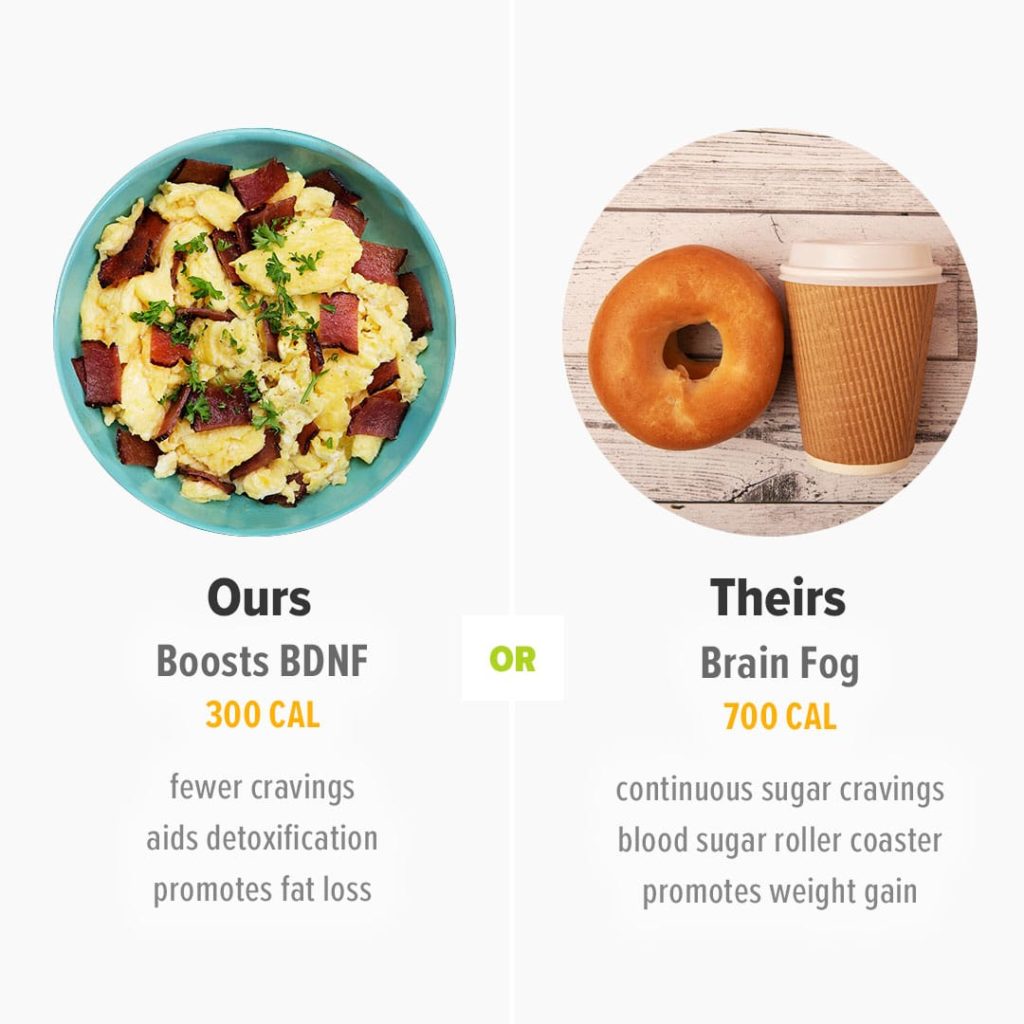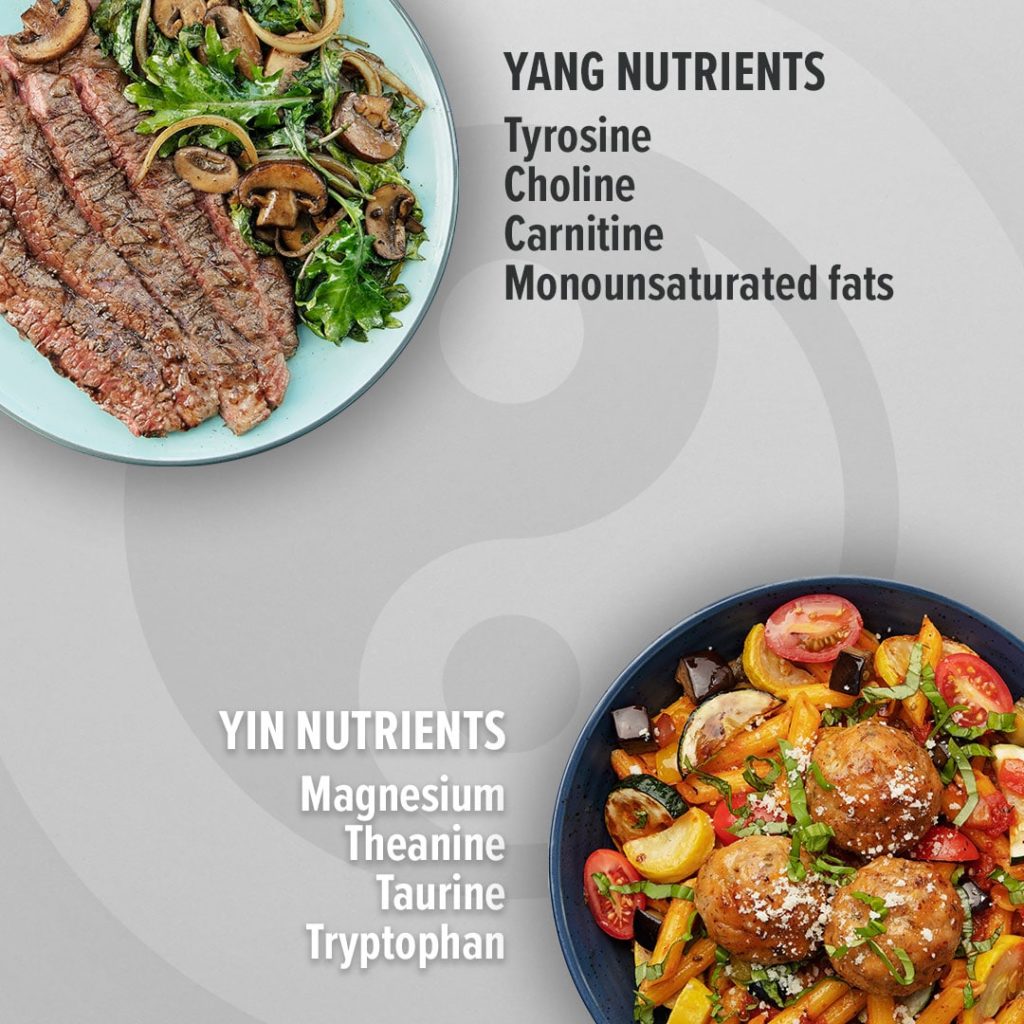ARTICLE AT A GLANCE
Brain-derived neurotrophic factor, or BDNF, is a protein that’s important for your strong long-term memory, motivation, and overall cognitive function. It’s often referred to as “Miracle-Gro for the brain” because of its involvement in the growth of new brain cells.
If you want to be more decisive, motivated, and effective in everything you do each day, you need to cultivate a morning routine that will boost your BDNF.
Implement these proven strategies to optimize your morning routine:
1. Start sleeping consistently — and track your progress.
According to Matthew Walker, professor of neuroscience and psychology at the University of California, Berkeley, going to sleep and waking up at the same time every day is the most important way to improve your sleep quality. Multiple studies across millions of people show shorter, lower-quality sleep cycles lead to diminished creativity and productivity, as well as shorter life spans.

Sleeping well and waking early are also fundamental for many of the following tips. It’s the best way to clear amyloid plaques in the brain, which inhibit cognitive function and contribute to dementia. Also, rate your energy levels and mood from one to 10 within 30 minutes of rising every morning. If you’re not consistently rating it an eight or higher, it’s time to prioritize sleep.
In addition to sticking to a consistent bedtime, use wearable devices or smart mattresses to track the duration and quality of your sleep each night. If you aren’t getting seven to eight hours of deep rest, you might want to go to sleep earlier. Having trouble with that? Stay away from TV, laptop, and mobile screens for at least two hours before going to bed.
2. Plan your meals to manage blood sugar.
Legendary strength coach Charles Poliquin believed that the first meal you consume dictates your neurotransmitters for the entire day. Poliquin worked with everyone from Olympic athletes to busy corporate executives and found that prioritizing the first meal had the greatest impact on motivation, cognitive function, and even fat loss when formulated correctly.
Poliquin recommended pairing a quality protein, such as eggs, steak, bison, or chicken, with a quality fat source that’s high in monounsaturated fats or omega-3s. That might include avocado, walnuts, olive oil, macadamia nuts, grass-fed butter, ghee, coconut, almonds, or a variety of seeds. He also approved black coffee.
This combination raises motivational neurotransmitters such as dopamine and acetylcholine while slowly raising blood sugar to avoid peaks and valleys.

Cooking your own meals ahead of time or having them prepared and delivered by a healthy meal delivery service are great ways to avoid succumbing to the drive-thru or other unhealthy choices each morning.
Planning your nutrition ahead of time also helps you make sure to eat meals made of quality proteins, seasonal produce, and healthy fats. These ingredients will help you avoid the zinc, magnesium, vitamin B, and omega-3 deficiencies that are common in Western society due to overconsumption of processed foods.

Opting for a high protein, moderate fat breakfast over the typical American grab-and-go breakfast is a critical part of developing a morning routine that can help boost BDNF.
3. Spend your energy on important things first.
In his book “Organize Tomorrow Today,” sports psychologist Jason Selk says prioritizing is the single most underrated skill of highly successful people. For example, completing your most important activities first — preferably before 10 a.m. — can make your confidence and productivity soar throughout the rest of the day.

Usually, emergencies and urgent tasks start happening mid- to late morning, and having your biggest responsibilities taken care of will allow you tackle those tasks undistracted. Knocking out the most important things on your calendar early will help you face the rest of the day with greater energy and confidence and lower stress levels.
You can use one of many great apps to help streamline your organization and team communication, such as Evernote, Trello, and Asana. Or you might be more comfortable mastering the calendar and reminder functions on your smartphone. Whichever system works best, make sure you use it to start each day by knocking out whatever you deem most important.
4. Take the ‘yin and yang’ approach to wellness
In ancient Chinese philosophy, yin and yang is the concept of dualism that describes how opposite forces complement each other’s existence. In health, fitness, nutrition, and even work, yang would be the energy you put into action, and yin would be the time you spend calming yourself and recuperating that energy.
For example, studies show physical activity is associated with executive function, memory, and processing speed. Dr. Daniel Amen, whose Amen Clinics have performed more than 100,000 brain scans, says exercising on a regular basis is vital to increasing your production of BDNF and new brain cells.

The more intense the activity, the greater the benefit. Strength training, high-intensity interval training, and 20 to 30 minutes of aerobic exercise at 60% of your max heart rate are the best exercises to raise BDNF. Racquet sports and ping-pong are also great exercises because your brain, reflexes, and hand-eye coordination all get workouts, too.
However, it’s just as important to relax and allow your body to cleanse itself of stress hormones, such as cortisol. Break up your intense workout routine with plenty of yin activities like yoga, hiking, power naps, family time, outdoor activities, and vacations.
Also, try consuming foods high in magnesium, tryptophan, and taurine to help further lower cortisol levels.

Aside from those strategies, there are a few small changes you can make during your morning routine that will lead to a great day. For instance, you can switch your coffee for ketone salts, which have enormous potential to enhance cognition and mental focus, even in those with neurological and neurodegenerative conditions.
You could also end your showers with a blast of cold water, as cold exposure is liked to lowered inflammation, improved immune function, increased metabolism, and increased norepinephrine — a lack of which drains your attention, mood, and energy.
A Great Morning Routine in Action

It’s important to experiment and find the routines that work with your psychology, physiology, and schedule. If you’re having trouble imagining what a routine might look like, check out this example that includes several of the suggestions we’ve given in this article:
6 a.m. – Wake up.
6:15 a.m. – Map out your day (with 1-2 cups of black coffee or exogenous ketones).
6:45 a.m. – Complete a 20-minute interval workout on a bike, treadmill, or bodyweight circuit.
8 a.m. – Eat a breakfast of free-range scrambled eggs and 4-ounce grass-fed steak. Drink half a liter of water.
9:15 a.m. – Start a meeting, set an appointment, or complete an important task.
After the breakfast and workout, you should be firing on all cylinders, and the tasks you can complete are endless. Use this example as a springboard to find the action steps that work for you. They’ll be different from person to person; instead of a workout, you might prefer to sit in a sauna or do cryotherapy.
Find what works for you, specifically, and be consistent in sticking to your routine. Getting into a new habit now will help you get more work done, and after a year or even a few months, you’ll be amazed by your progress.
Jason Barbour is a highly sought-after strength and nutritional consultant for busy executives and has worked with professional athletes from the NFL, NHL, and UFC, including three world champions and an Olympic medalist. In 2009, Jason started Metabolic Meals, one of the country’s largest healthy meal delivery companies with thousands of customers nationwide.






